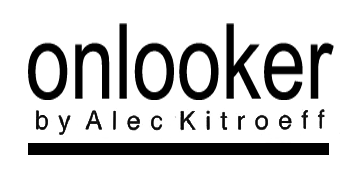
The President was an astute politician who had survived for eight years by walking a tightrope between East and West and playing off one against the other when there was any gain to be made from such tactics.
But now that the East was no longer in a position to help him or to be used as a· counterbalance, Akimba was out on a very precarious limb, with the West no longer prepared to put up with his shenanigans and his demagogic policies which had brought Wakanaka to the brink of bankruptcy.
The IMF official eyed the various people in the President’s office with disapproval and Akimba dismissed them all with a peremptory wave of his hand, with the exception of his nephew, Apiko Akimba, who was also his private secretary.
When the IMF man continued to glare at Apiko, the President said: “Do you not want to have minutes of our meeting?”
“I do not! And you will not want them either after you’ve heard what I have to say,” he replied grimly.
Akimba sighed and waved Apiko away. The young man left by the door leading to his office and immediately stuck his ear to the keyhole on the other side.
“I trust your flight here was a pleasant one, Mr Cadwallader, and that your accommodations are comfortable?” Akimba asked.
Cadwallader shrugged.
The ninehour Air Wakanaka flight from New York, via Dakar, had been a bumpy one and, after plying him with warm champagne for the first half hour, the two fat stewardesses in first class had planted themselves in the empty seats behind him and snored throughout the rest of the flight. Also, the air conditioning in his suite·at the Wakanaka Excelsior was not working because a large bat had committed suicide on the air intake, outside his window, and was proving rather difficult to extricate.
“Your excellency,” he started, “I won’t waste your time. I was sent here to deal with your application for a restructuring of your old loans and your request for another one to see you through the next six months.”
Cadwallader removed his gold rimmed glasses, wiped them with his handkerchief and peered at the President with an exasperated expression.
“Do you realize, sir, that during your eight years of government you have accumulated such an enormous foreign debt that every man, woman and child in Wakanaka will have to pay 10,000 dollars a year for the next 20 years if the debt is ever to be paid off?” The President remained silent.
“When we gave you that huge loan in 1985,” Cadwallader went on, “it was on the understanding that it would be used solely for infrastructure works to enable Wakanaka to attract foreign investments and reduce the huge deficit in your balance of payments, was it not?” Akimba nodded.
“And instead, what did you do?
You gave pensions to all Wakanakans whose ancestors had been taken as slaves to America. You gave disability pensions to all Wak1;1nakans who had been bitten by a scorpion, a snake, a baboon or a lion and survived. You nationalized the few industries that were functioning in Wakanaka and plunged them into the red by packing them with redundant personnel. You did the same with all the state-owned banks and public utilities, as well as the airline I had the misfortune to arrive on.”
“You introduced a national health service that never worked, will never work and has cost millions.”
“You spent more millions on buying jet fighters that cost ten times as much as they were worth and you launched an expensive campaign to bring the Olympic Games to Wakanaka, which never came to anything.”
“You have run up a public debt that has broken world records and you are doing nothing to reduce it. And yet you come to us, holding your hand out for money to pour down a bottomless hole.”
“What are we to do with you, Mr Akimba? Put yourself in our place, Mr President, and tell me what are we to do with you?”
Akimba pressed his lips and said nothing.
Cadwallader polished his glasses again and went on:
“What I can’t understand is how you’ were able to reduce the Wakanakan economy to this state when, I am told, you have a Ph.D. in Economics and, if this is true, how could you not have known better?” Akimba nodded.
“Yes, I have a Ph.D. in Economics which I received in 1959, from the University of California at Berkeley. It was a time when the Dean of Economics was a distinguished professor who later became the prime minister of his country. He was my teacher.
Cadwallader sat up.
“You don’t mean… “
“Yes. Dr Andreas Papandreou.”
Cadwallader gave a long, low whistle and shook his head from side to side.
“Well, well, well. What do you know. Well, what do you know?” he said, emphasizing the last four words.
“Son of a gun, Mr President,” he said suddenly, looking brightly at Akimba.
“You know what I’m gonna do?”
“What?” Akimba asked, rather apprehensively.
“I’m gonna recommend to the IMF to do everything it can to help you, on one condition.”
“What’s that?”
“That you take another course in economics and forget everything you ever learnt from Dr Papandreou!”







